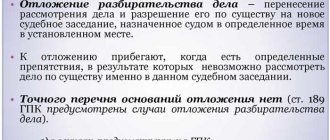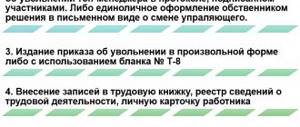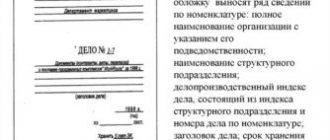Hello, dear readers, let's figure out what cases the ECHR is considering? Many people who are in one way or another interested in issues of world politics have heard something about the European Court of Human Rights (hereinafter referred to as the ECHR). This organization is essentially an international judicial body. The town of Strasbourg, located in France, was chosen as its location. It is for this reason that in everyday life the court is often called Strasbourg.
All countries that have declared their membership in the Council of Europe fall under the legal jurisdiction of the court. Today it includes 47 states. Russia confirmed its membership in the organization only on May 5, 1998. The number of judges is always equal to the number of participating countries. Despite this, judges are not representatives of their homeland, and are therefore independent of their official position on a particular case, even in situations where it has great political resonance.
The organizational structure of the court includes the Secretariat. This body includes legal experts who have the citizenship of a member state of the Council of Europe. The task of these people is to assist judges in considering complaints.
Fundamentals of international justice
The main legal basis for the work of the ECHR is the Convention for the Protection of Human Rights and Fundamental Freedoms (hereinafter referred to as the Convention). For most of the population of the Old World, it began working on November 4, 1950. The place of its adoption is the capital of Italy, Rome. Despite this, the court began its practical activities only ten years later. It was then that they issued their first ruling. This took place on November 14, 1960. The case was called Lawrence v. Ireland.
The Convention contains a number of different rights that are subject to protection by the European Themis, and in the event of a court ruling on the violation of these rights, compensation.
These include:
- The first on the list is a basic natural right, which is inalienable and each of us has from the day we are born - this is the right to life. The laws of all civilized countries of the world have taken it under protection, and therefore a ban on intentional murder is established at the state level. The exception is cases of death penalty by court verdict, but in almost all European countries a moratorium (that is, a temporary ban) has been imposed on its use;
- The use of torture or other inhuman or degrading treatment or punishment is also prohibited. Violation of this norm in relation to criminals is also unacceptable. It is illegal to diminish the dignity of a person, even if he is a brutal, cold-blooded killer, terrorist or war criminal. They can also, on the basis of the law, claim to be treated humanely;
- The Convention imposes the strictest prohibition on the use of slave labor. A ban on forced labor of any kind is also introduced. This prohibition extends not only to the non-use of forced labor in ordinary civilian life, but also to its prohibition in conditions of imprisonment, military service or emergency situations;
- The Convention protects individual freedom and its inviolability. No one, be it an ordinary person, an enterprise or a state body, has the right to arbitrarily deprive a person of freedom and keep him in conditions of captivity. The introduction of these restrictions will be legal if the sentence of imprisonment is approved by the court;
- Everyone has the right to a fair trial. According to this, calling a person a criminal becomes permissible only after a court has passed a guilty verdict against him. No other authority has the right to do this. The creation of any kind of “extraordinary courts” or bodies like Stalin’s “troikas” is prohibited. A person’s right to defense has been established, which has no dependence on the degree of guilt;
- The subsequent norm secures the right of everyone to fair punishment. It can only be issued within the framework of the law. If the current law does not establish the criminality of an act, then it cannot become a reason for prosecution under the law. It is also unacceptable to apply a more severe punishment than is prescribed by law;
- The Convention prohibits government interference in the private and family affairs of its citizens. Unauthorized entry into a home is also unacceptable from a legal point of view. If law enforcement agencies want to do this legally, then they must obtain documented permission from the supervisory authorities;
- The right of everyone to freedom of thought and conscience is also secured. The protection of this norm also includes the possibility of professing any system of religious norms and rules, or not professing them at all and being an atheist;
- According to the norms of the Convention, absolutely anyone, and this in no way depends on his position in society, has the full right to express his points of view regarding any events in public life. This also includes the possibility of freely receiving and distributing information, in which no government officials have the right to interfere;
- Freedom of association and any peaceful assembly of citizens is also secured. The creation of trade unions of workers of any specialties is also permitted;
- The right of everyone to create a family is also secured. This becomes possible when a person reaches a certain age, which is usually prescribed in the laws of countries;
- The right to use effective legal remedies has also been established;
- Discrimination (that is, derogation and infringement of the rights of any individual) in any form is also prohibited.
What cases can be considered in this court?
All issues related to the consideration of civil cases are regulated by a separate document - the Civil Procedure Code of the Russian Federation. According to certain provisions of the code, statements of claim are sent to courts of general jurisdiction to consider cases where the parties are directly citizens.
The following appeals may be considered by this authority:
- claims relating to civil, labor and family, housing, land and other types of legal relations;
- applications for the collection of debts in respect of which a court order has already been issued;
- appealing against illegal actions or complete inaction of government agencies;
- cases in which it will be necessary to open special proceedings in order to establish a certain legal fact in the future;
- if necessary, challenge the decision of the arbitrator or obtain an IL for the decision issued by such a judge.
It is important to note that the case may be considered in several instances. On the one hand, we are talking about the first instance, when the submitted appeal is accepted for consideration by magistrates or district judges.
Jurisdiction and its main principles
Any work at the ECHR can begin only after filing a complaint. This can be done by any individuals and legal entities. Since in its practical activities this court is based on the Convention, it can consider complaints about violations of the rights that are prescribed in it or the Protocols to it. This court does not have the right to consider complaints that are filed on the basis of national law. Also, the jurisdiction of the ECHR cannot extend to states that are not members of the Council of Europe.
By its legal essence, the ECHR is not an appellate or cassation authority in relation to national courts, therefore it does not have the right to review their decisions or sentences.
The court can only accept complaints that are formalized according to strictly established rules. For this purpose, the court even adopted a single form. You can file a complaint yourself, without the help of a lawyer.
In addition, the court does not have the right to consider complaints filed about events that took place before the ratification of the Convention by one or another state. For example, the ECHR does not have the right to consider complaints against Russia that are filed regarding events that happened before May 5, 1998.
A prerequisite for filing a complaint with the ECHR is that a person goes through all the necessary authorities in his home country.
Also, when filing a complaint with the ECHR, a mandatory condition for its acceptance is compliance with the established deadline. As a general rule, it is six months from the date of the national court's decision on your case. But this procedure is changing; the period will be reduced to four months. Monitor changes (Log 15).
In addition, the ECtHR has established special criteria for the admissibility of a complaint; if these criteria are not met, the complaint will not be accepted for processing.
If you want your case to be examined from all sides, then you need to attach to the complaint a list of documents that confirm the facts specified in it. They can include various opinions of specialists and experts, medical reports, witness statements, call printouts, conversation recordings and copies of Internet correspondence.
constitutional Court
The procedure for the creation and operation of the Constitutional Court is established by Federal Constitutional Law No. 1-FKZ of July 21, 1994 “On the Constitutional Court of the Russian Federation.”
The Constitutional Court is authorized to resolve cases concerning questions of law, while the constitutional court itself does not consider the factual circumstances of the case.
https://www.youtube.com/watch?v=https:accounts.google.comServiceLogin
Citizens, organizations, and officials may submit their appeals to the Constitutional Court if they believe that their rights and freedoms established by the Constitution of the Russian Federation have been violated when resolving their case in court, if they believe that any provisions of the normative act do not comply Constitution of the Russian Federation, or they believe that the provisions of the Constitution themselves are stated vaguely and need to be clarified.
Some numbers: a short overview of the data
So, as of 2021, Russia ranks first in the ranking in terms of the number of rulings made by the ECHR against it. Their number is 228 pieces. In total, a whopping 645 complaints have been filed against Russia in 2021. Turkey follows with 88 regulations. Romania is in third place (86 units).
At the same time, another 7,821 complaints against Russia are awaiting consideration. Of these, more than half (3613) are at the communication stage. The rest have just completed registration and no decision has yet been made on them.
In total, during the entire period of his work he issued 19,001 decisions, 22,483 reasoned decisions and three advisory opinions.
Over the entire period of its work, the ECHR most often issued rulings in relation to the states that are shown in the diagram below:
Military courts
Military courts are formed and operate in the manner established by Federal Constitutional Law No. 1-FKZ of June 23, 1999 “On Military Courts of the Russian Federation.”
Military personnel and those attending military training bring claims to the military court.
The military court considers:
- claims by military personnel and citizens attending military training in civil and administrative cases;
- cases of criminal offenses and administrative offenses committed by military personnel and citizens during military training.
We suggest you read: Marriage agreement in case of death
They say that Galyaviev is sick. Is it so?
Galyaviev, answering the judge’s question, said that he does not have serious illnesses or disabilities. Earlier, the Investigative Committee reported that the suspect was diagnosed with a brain disease in 2021, but the Investigative Committee did not specify the specific diagnosis.
The Investigative Committee noted that Galyaviev repeatedly consulted doctors because of severe headaches, but was not registered with a psychiatrist or narcologist. The Investigative Committee also reported that since the beginning of this year, relatives have noted aggressiveness and hot temper in his behavior.
To determine the mental health of the person involved in the criminal case, a psychological and psychiatric examination will be carried out. The examination will take place in Moscow, RIA Novosti reports, citing a source in law enforcement agencies. The agency's interlocutor clarified that, most likely, Galyaviev will be brought to the capital to conduct a comprehensive psychological and psychiatric examination at the Institute. V. P. Serbsky. He did not specify when this would happen.
In turn, according to the Baza Telegram channel, a preliminary psychological and psychiatric examination of Galyavieva is personally conducted by Zurab Kekelidze, the chief freelance psychiatrist of the Ministry of Health and director of the center named after. V. P. Serbsky in Moscow . According to the channel, Galyavieva has also already undergone a drug examination - no traces of drugs or alcohol were found in the tests.
The Investigative Committee reported that in total more than 30 forensic examinations were ordered in the criminal case, including molecular genetic, explosives, physical and chemical, ballistic, and forensic.
School shooting in Kazan
www.globallookpress.com
RIA Novosti / Maxim Bogodvid
RIA Novosti / Maxim Bogodvid
Reuters
RIA Novosti / Maxim Bogodvid
RIA Novosti / Maxim Bogodvid
President of the Republic of Tatarstan Rustam Minnikhanov (second from left) at a school in Kazan, where unknown persons opened fire RIA Novosti / Maxim Bogodvid
Reuters






